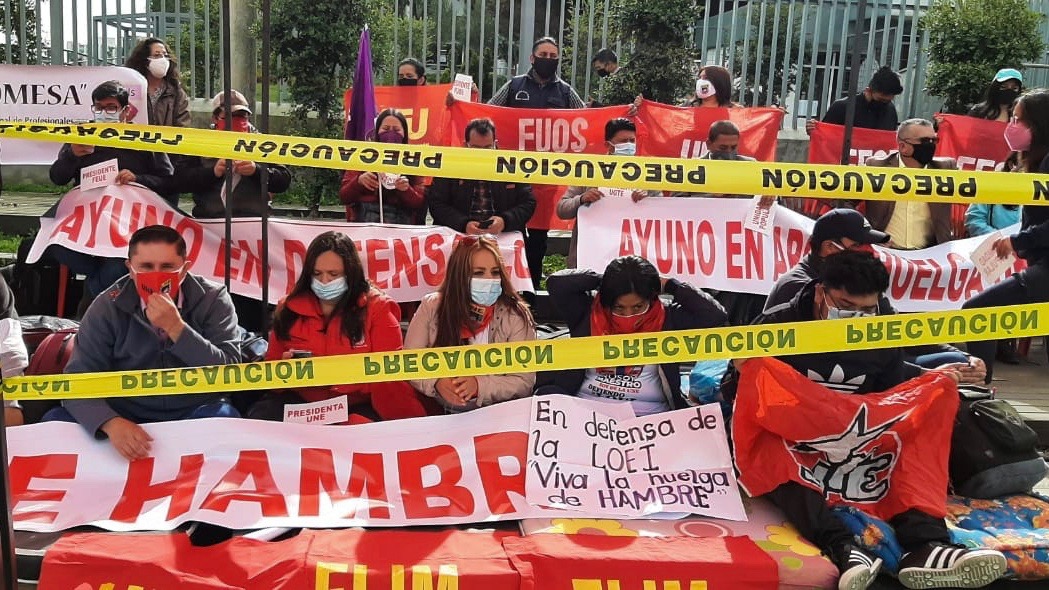Since July 12, a group of over a dozen Ecuadorian teachers have been carrying out a hunger strike to demand implementation of the Organic Law of Intercultural Education (LOEI). Teachers from at least four cities, the capital Quito, Guayaquil, Cuenca and Portoviejo, are part of the protest measure.
The LOEI is the product of 12 years of extensive work of more than 100 educational organizations and unions. The law modifies about 80% of the existing education system, which has been in force since March 2011. It increases the budget for the education sector, guarantees inclusive and quality public education, includes artistic and cultural teaching, employs special education teachers for students with disabilities at all educational levels, provides free Internet in all public education establishments, increases the basic salary of teachers from 817 USD to 1,086 USD, establishes the reinstatement of teachers who were fired or dismissed during the health emergency due to the COVID-19 pandemic, among other measures.
It was approved unanimously in the National Assembly on March 9 and would have come into effect this month. However, it remains suspended due to a lawsuit filed against it by the Ecuadorian Social Security Institute (IESS).
The ongoing strike has been organized by the National Union of Educators (UNE). It has received the support of various students’ unions such as the Federation of University Students of Ecuador (FEUE), the Revolutionary Youth of Ecuador (JRE) and the Federation of Secondary Students of Ecuador (FESE). It has also received the support of the Confederation of Indigenous Nationalities of Ecuador (CONAIE), Women for Change, among other social organizations. Students and parents are also mobilizing in different parts of the country in solidarity with the teachers on hunger strike.
#ATENCIÓN En varias provincias del país se desarrollan movilizaciones en defensa de la #LOEI y en apoyo a la #HuelgaDeHambre pic.twitter.com/P0AuynhA3g
— UNE NACIONAL (@UNENACIONAL) July 14, 2021
Isabel Vargas, the president of the UNE, stated that the right-wing government of President Guillermo Lasso seeks to declare the law unconstitutional. “We have given our arguments. Unfortunately, the spokesperson for the Presidency of the Republic, who talks so much about the meeting, said that the law should be declared unconstitutional,” said Vargas from the outskirts of the parliament on Monday.
Meanwhile, the UNE, while calling for the hunger strike, in an official statement, said that “the government of the encounter is nothing more than a slogan, not a reality.” In this regard, the union specified that last month, on June 2, it sent a request to dialogue with the government, which was shelved eight days later. The UNE stated that “the Executive has not only closed the doors to the discussion of a problem of enormous importance for the country, apparently, it seeks to provoke social conflict.





